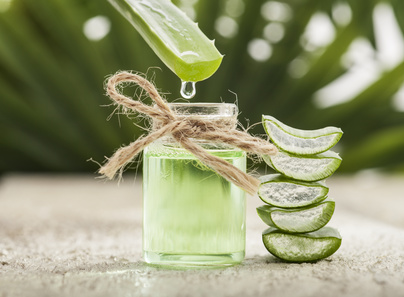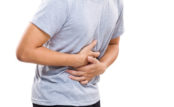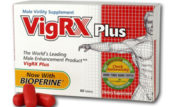 Admit it, you’ve seen people your own age and noticed how much they’ve aged since you last saw them. It’s not your imagination – a new study published this week reveals some people really do age faster than others. In fact, it’s possible for a 38 year-old to look and feel like he’s 60. But he’s yet to celebrate his 40th birthday.
Admit it, you’ve seen people your own age and noticed how much they’ve aged since you last saw them. It’s not your imagination – a new study published this week reveals some people really do age faster than others. In fact, it’s possible for a 38 year-old to look and feel like he’s 60. But he’s yet to celebrate his 40th birthday.
Cosmetics aside, the study raises some interesting points. Your appearance is indicative of your health overall. Look older and you may be at higher risk of age-related conditions, like diabetes and heart disease. And the opposite holds true as well – a younger body may be a hall pass to looking good, and lower risk of health conditions down the road.
Some People Age Faster Than Others
The study consisted of roughly 1,000 38 year-old men and women. Each participant was born in 1972 or 1973 and had participated in the ongoing New Zealand study since birth.
In 2011, all the subjects took tests to measure kidney function, liver function, lung capacity and strength of their immune and metabolic systems. Researchers also measured each person’s cholesterol, blood pressure, dental status, eye structure, heart health and – very notably – the length of their chromosonal caps, called telomeres, which are known to shorten with age.
The tests allowed researchers to observe how each subject had aged, biologically and chronologically. And they found a variance of biological age up to 30 years, even though each participant was free of age-related disease.
Put another way, the study suggests that someone age 38 could have the body of a 58 year-old – despite being 20 years younger – or of someone who was only 28.
Put another way, the study suggests that someone age 38 could have the body of a 58 year-old – despite being 20 years younger – or of someone who was only 28.
The research team strengthened their findings with a secondary analysis of biomarker information in 2011 with data collected six and 12 years earlier. This information showed that, between 26 and 38, most subjects aged at the same pace biologically. But a few had gained three biological years for each chronological birthday they’d celebrated.
And conversely, a lucky few had basically stopped getting older – despite being the same age as those who’d aged normally or at an accelerated pace.
It’s also notable that people who’d aged faster did worse on physical and mental accuity tests. Fast-agers had worse balance and motor coordination. They had problems climbing stairs and carrying groceries, for example, which suggest not only that people who age faster are at higher risk of age-related conditions, but that it’s also possible to predict such problems when observed at a relatively young age.
What This Means to YOU
Take care of yourself. The study found that people aged because of genetic and environmental factors. While you can’t change your genes, you can certainly manage the factors within your control that can speed up or slow down the pace at which you get older.
You’ll look younger, to say the least, and as the study suggests, may be healthier in the future because of what you do in the present.
Habits that Make You Older
You’d be surprised by some of the things that make you look older. There are the obvious factors like sun exposure – the leading cause of aged skin, in fact – but the little things add up quickly too. Things like:
Multi-Tasking – This may come as a surprise, but studies suggest that chronic stress trigger free radicals, which damage cells and lead to an old appearance. A better approach may be to focus on one task at a time, and only move on when it’s totally done.
Eating Sweets – Your sweet tooth is no friend of your waistline, and it’s not kind to your skin either. That’s because sugar molecules attach to protein fibers, in a process called glycation, which can cause dark circles under your eyes, create fine lines, wrinkles and take the radiance away from your skin.
Less Than 5 Hours Sleep – Don’t skimp on sleep if you want to stay young. You’re at higher risk of tired eyes if you do, and not great for your quality of life. Aim for at least seven hours a night, practice good sleep hygiene, or try Alteril if you have sleeping problems.
You’re a TV Fanatic – A study in the British Journal of Sports Medicine found every hour that Australians watched TV cut their life expectancy by 22 minutes. The effect may be more from sitting than watching the boob tube, so it can’t hurt to get up and walk around every 30 minutes.
 Sitting – The mileage of prolonged sitting takes a toll on the body, with risk of kidney disease, cardiovascular disease, cancer and obesity being among the health dangers linked to sedentary lifestyle. Your move? In a word: exercise. Aim for at least 150 minutes a week.
Sitting – The mileage of prolonged sitting takes a toll on the body, with risk of kidney disease, cardiovascular disease, cancer and obesity being among the health dangers linked to sedentary lifestyle. Your move? In a word: exercise. Aim for at least 150 minutes a week.
Not Using an Eye Cream – Age shows around the eyes. It’s thinner here than anywhere else on the body and is more vulnerable to aging than other parts of your face. That’s why it’s so important to use an eye cream. Try a product with Retin-A, antioxidants, vitamin C and hyaluronic acid – all of which you can get in Kollagen Intensiv.
Not Enough Sunscreen – Sunscreen may be the ultimate anti-aging cream, yet most people just slather in summer or while on vacation. Bad move – the sun is the leading cause of skin-aging on the face. That’s why you’ll want to apply sunscreen in all seasons, including winter and on cloudy days. Choose a product between SPF 30 and 50.
Too Much Make Up – Oil-based products can clog your pores. The fragrance and alcohol in make up can also dry the skin and lead to premature wrinkles and fine lines.
Sleeping Face-Down In Your Pillow – Every notice how rough you look after tossing and turning? You may notice ‘pillow marks’ on your cheek, for example. Over time, this can weaken the tissue and collagen in your face and those crease lines can linger. Your move: sleep on your back and/or pay a little more for a satin pillow case, which is easier on your skin.
A Warm Home – You may be tempted to crank up the heat on those frosty winter evenings. Resist that urge – heat sucks moisture out of the air. Buy a humidifier to counteract that dry air or, if you’re on a budget, put a bowl of cold water in the room to get back some of that moisture.
Using Straws – Surprised by this one? You already know that squinting can damage the collagen at the corners of your eyes. Well, sipping through straws has the same effect around your mouth. Smoking cigarettes does the same.
Removing All Fat From Your Diet – Fat doesn’t have to be bad for you. In fact, your body requires the nutrients in health fats like nuts, avocado and oily fish to nourish the skin and prevent wrinkles. Aim for two servings of fish at least twice a week.
Slouching – Don’t slouch. You risk an unattractive (and potentially harmful) hunched posture over time if you do. Your ears, shoulders and spine should form a straight line when seated.
Good Anti-Aging Habits
Now that we’ve gone over some of the surprising ways you may be aging yourself, let’s look at some of the habits that may help you beat father time and look, feel and at least rock the aging factors within your control:
Eat Protein With Every Meal – As a general rule, aim for a a gram of protein for every kilogram of weight (use a metric converter if you’re American. Protein slows insulin levels, which helps you avoid weight gain and the health conditions linked to it. Protein also helps stabilize blood sugar and keeps stress hormones in check. Think fish, turkey, egg whites and tofu – barring food allergies.
Reduce Stress – Chill out mate. Stress makes the body release cortisol and shortens the telomeres we talked about in the New Zealand study. Extracts with magnolia flower, green tea or peptide can all help make life less hectic. You can also get a massage, exercise and consider other healthy ways to manage stress.
Vitamin B6 and B12 – Some evidence suggests that vitamins B6 and B12 may reduce cortisol and increase serotonin – a chemical the body uses to reduce stress and anxiety.
Lavender – Lavender is a natural relaxant. It may help stabilize cortisol, and of course, it smells nice. Put some lavendar oil in your next bath, rub it on your face or body, or simply tuck the dried flower under your pill to enjoy lavender in its stress-reducing glory.
 Exercise Often – A great way to counteract some of the ‘sitting will kill you’ paranoia, exercise helps the body release growth hormone, which helps the body remain youthful, be it for your skin, weight, libido or energy. The Mayo Clinic recommends at least 30 minutes of physical activity each day.
Exercise Often – A great way to counteract some of the ‘sitting will kill you’ paranoia, exercise helps the body release growth hormone, which helps the body remain youthful, be it for your skin, weight, libido or energy. The Mayo Clinic recommends at least 30 minutes of physical activity each day.
Aim For Nine Hourse Sleep – We’ve already discussed how less than five hours a night doesn’t cut it for most people. Some health experts take that a step further say we should aim for nine hours of deep sleep each night.
Note too that people with sleeping problems are often low in growth hormone. We offer a natural growth hormone supplement here at Natural Health Source, called GenF20 Plus which, among other benefits, helps some people get better rest.
Avoid These Foods
You’ve heard it said that “you are what you eat”. You don’t want to be a fried food if you’re concerned about premature aging, along with these foods that, well, make you look older:
Sweets – We’ve talked about sweets already. Among other things, sugar is linked to glycation, which damages your skin, and contributes to weight gain (to say nothing of spiking your insulin), but it’s also bad for your teeth and can lead to decay and discoloration.
Alcohol – Your skin needs a healthy liver. That’s why you don’t want to slather it in alchohol – too much booze can lead to dull skin, acne and wrinkles, and is even linked to rosacea outbreaks. Plus, it dehydrates the body, and isn’t kind to a good night’s rest.
White Wine – Here’s a surprise, especially considering all the talk of moderate wine consumption being good for you. But white wine doesn’t have the resveratrol found in its red cousin, and can actually damage the enamel on your teeth. If you still don’t want to give up white wine, wait an hour before brushing your teeth to allow them to remineralize.
Charred Meat – Personally, this hurts, because there are few things I enjoy more than a beer with a steak sizzling on my barbecue. But charred meat may have pro-inflammatory carbons that break down collagen – to say nothing of the health risks linked to red meat. You should at least scrape the char off your meat, and clean your grill after each meal.
Salty Foods – Salt can show up in surprising ways. It’s common in canned foods, for example, which can lead to water retention and that ‘puffy’ look. Avoid salty foods where possible and use a moisturizer with caffeine to fight fluid retention.
 Processed Meats – There’s a common theme between processed meats and the previous two foods. They’re typically high in salt, preservatives, carcinogens and can lead to collagen-damaging inflammation. Your move: swap deli meats for chicken or turkey. Avoid sausages, pepperoni and those other guilty pleasures. Tell yourself you’ll look younger as incentive to stay the course.
Processed Meats – There’s a common theme between processed meats and the previous two foods. They’re typically high in salt, preservatives, carcinogens and can lead to collagen-damaging inflammation. Your move: swap deli meats for chicken or turkey. Avoid sausages, pepperoni and those other guilty pleasures. Tell yourself you’ll look younger as incentive to stay the course.
Red Meat – If you’re starting to feel like meat ain’t your friend, you’re on the right track. Fatty meats are linked to age-causing free radicals, which damage collagen and may even lead to alzheimer’s disease. While the odd burger probably won’t kill you, opt for lean meats, chicken and turkey as better alternatives. And don’t forget to load up on antioxidant-rich fruits and vegetables.
Energy Drinks – Red Bull may give you wings, but it’s murder on your pearly whites. A study in General Dentistry found that energy drinks stripped more enamel from teeth than sports drinks like Gatorade. That acidity makes teeth more vulnerable to stains.
Lemonade – Is nothing sacred? Apparently not, but innocent-looking lemonade is made of citrus, which damages tooth enamel, and lemon juice is the worst offender – especially when combined with sugar.
Trans Fats – This one’s less painful to swallow. Trans fats are an extraordinarily unhealthy group of fats that lead to inflammation. That’s bad news for your skin because it damages collagen. These murderous fats can also make you more vulnerable to UV damage, and of course, it’s linked to heart disease. Trans fats are common in these foods.
Try These Anti-Aging Foods Instead
You may be moping about some of the age-causing foods we just talked about (lemonade…really??). This might soften the blow a little – the following foods may help you age slower thanks to their free radical-fighting nutrients. As a bonus, some of them are delicious.
Olive Oil – A staple of the mediterranean diet, olive oil may be the opposite of those dreaded trans fats. It’s rich in healthy monounsaturated fats and has powerful antioxidants, called polyphenols, which may contribute to the low rates of heart disease experienced by people on the island of Crete.
Yogurt – Call it a paradox, but in the 1970s, Soviet Georgia was rumored to have more centarians than any other place on Earth. Their secret? While not proven, it may be thanks to their high consumption of yogurt, which is high in bone-friendly calcium, and delivers probiotics by the boat-load.
Fish – Here we are again. But you can’t ignore the reports of fish being responsible to health in old age, from Alaska to Okinawa. That’s much in part because of those omega-3 fatty acids, which may help prevent cholesterol build up in the arteries. Plus they’re good for your brain – and even your loins.
 Chocolate – Chocolate doesn’t always fall in the same category as ‘sweets’. In fact, it can even be healthy. Consider dark chocolate, which is high in flavanols that appear to help maintain function of blood vessels, which lowers risk of high blood pressure, type 2 diabetes, kidney disease and dementia.
Chocolate – Chocolate doesn’t always fall in the same category as ‘sweets’. In fact, it can even be healthy. Consider dark chocolate, which is high in flavanols that appear to help maintain function of blood vessels, which lowers risk of high blood pressure, type 2 diabetes, kidney disease and dementia.
Nuts – More healthy fats for you. Guys will like that walnuts are rocket fuel for healthy sperm. Both men and women will like that studies link regular consumption of nuts to longer time in this world by an average two and a half years. Nuts are high in unsaturated fats and minerals and are just loaded in age-protecting antioxidants.
(Red) Wine – White wine is bad for your teeth, and alcohol in general is best kept to a minimum. But if you do like the odd drink, make it a glass of red. You’ll enjoy a good dose of resveratrol, which may activate genes that slow the aging process. As well, further studies link moderate red wine consumption to protection from heart disease and diabetes.




